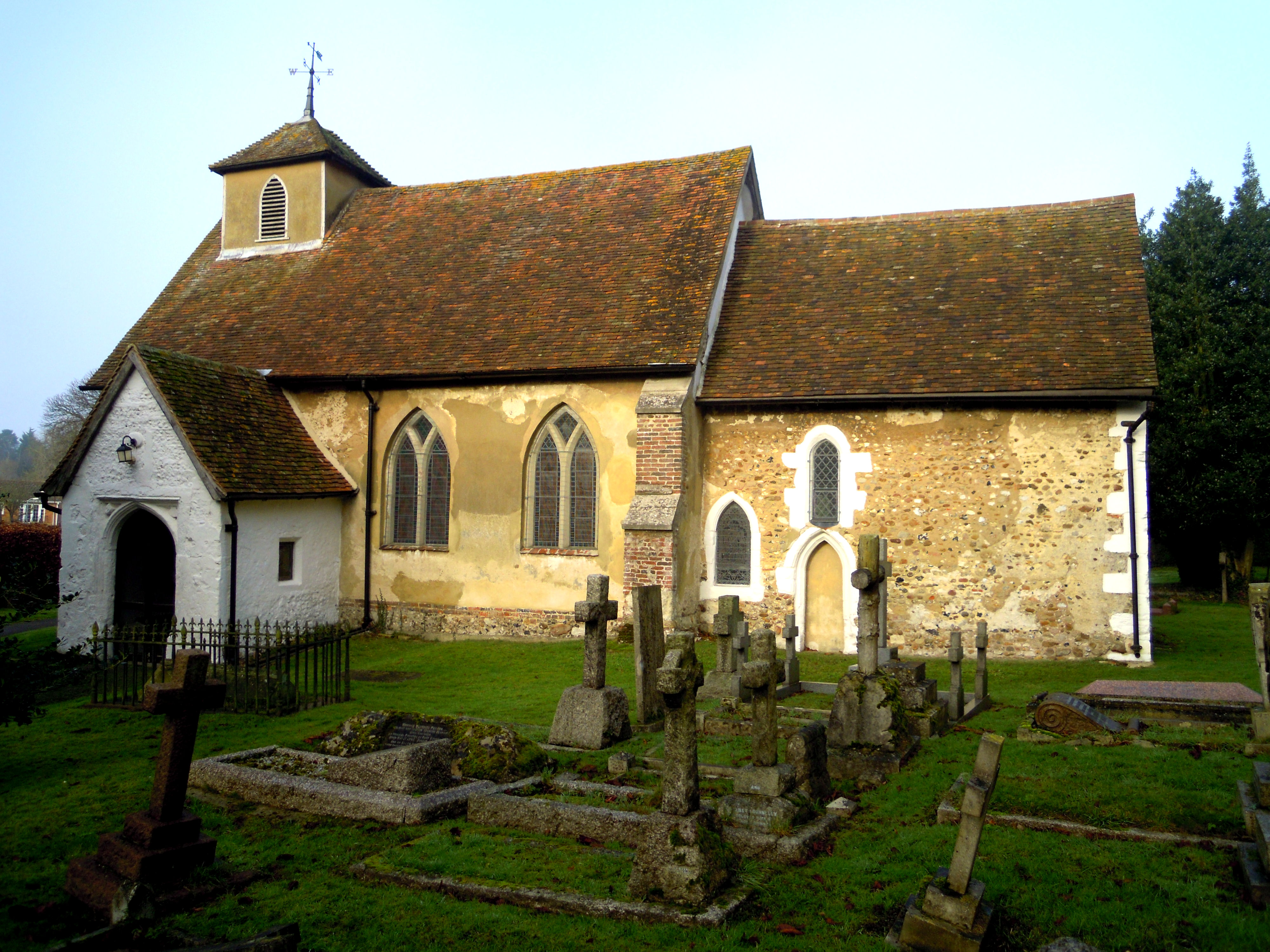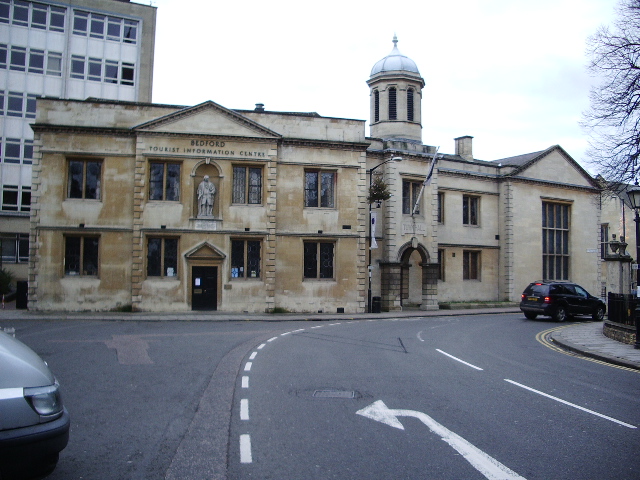|
Gipsy Smith
Rodney "Gipsy" Smith Member of the Most Excellent Order of the British Empire, MBE (31 March 1860 – 4 August 1947) was a British Evangelism, evangelist who conducted evangelistic campaigns in the United States and Great Britain for over 70 years. He was an early member of The Salvation Army and a contemporary of Fanny Crosby and acquaintance of G. Campbell Morgan and Harry A. Ironside, H. A. Ironside. Early life Smith was born in a Romani people, Romani bender tent in Epping Forest, six miles northeast of London. Today the site is marked with a large, commemorative stone in the woods near Waterworks Corner, Woodford Green. Smith received no education, and his family made a living selling baskets, tinware, and clothespegs. His father, Cornelius (1831–1922), and his mother, Mary (Polly) Welch (c1831-1865), provided a home that was happy in their Vardo (Romani wagon), vardo. Smith was a child when his mother died from smallpox near Baldock in Hertfordshire. She is buried in the ... [...More Info...] [...Related Items...] OR: [Wikipedia] [Google] [Baidu] |
Letchworth Garden City
Letchworth Garden City, commonly known as Letchworth, is a town in the North Hertfordshire district of Hertfordshire, England. It is noted for being the first garden city. The population at the time of the 2011 census was 33,249. Letchworth was an ancient parish, appearing in the Domesday Book of 1086. It remained a small rural village until the start of the twentieth century. The development of the modern town began in 1903, when much of the land in Letchworth and the neighbouring parishes of Willian and Norton was purchased by a company called First Garden City Limited, founded by Ebenezer Howard and his supporters with the aim of building the first "garden city", following the principles Howard had set out in his 1898 book, ''To-morrow: A Peaceful Path to Real Reform''. Their aim was to create a new type of settlement which provided jobs, services, and good housing for residents, whilst retaining the environmental quality of the countryside, in contrast to most industrial ... [...More Info...] [...Related Items...] OR: [Wikipedia] [Google] [Baidu] |
Charles Crowie Smith
Charles is a masculine given name predominantly found in English and French speaking countries. It is from the French form ''Charles'' of the Proto-Germanic name (in runic alphabet) or ''*karilaz'' (in Latin alphabet), whose meaning was "free man". The Old English descendant of this word was '' Ċearl'' or ''Ċeorl'', as the name of King Cearl of Mercia, that disappeared after the Norman conquest of England. The name was notably borne by Charlemagne (Charles the Great), and was at the time Latinized as ''Karolus'' (as in ''Vita Karoli Magni''), later also as '' Carolus''. Some Germanic languages, for example Dutch and German, have retained the word in two separate senses. In the particular case of Dutch, ''Karel'' refers to the given name, whereas the noun ''kerel'' means "a bloke, fellow, man". Etymology The name's etymology is a Common Germanic noun ''*karilaz'' meaning "free man", which survives in English as churl (< Old English ''ċeorl''), which developed its depr ... [...More Info...] [...Related Items...] OR: [Wikipedia] [Google] [Baidu] |
East Leake
East Leake () is a large village and civil parish in the Rushcliffe district of Nottinghamshire, England, although its closest town and postal address is Loughborough in Leicestershire. It has a population of around 7,000, measured in the 2011 Census as 6,337. The original village was located on the Sheepwash Brook. Kingston Brook also runs through the village. Near the centre of the village is the historic St. Mary's Church, dating back to the 11th century, which Sheepwash Brook flows past, and an old ford, which provided access to the pinfold. The church has six bells. The Treaty of Leake was signed in 1318 by King Edward II and his baronial opponents. British Gypsum, a plasterboard manufacturer, has its headquarters in the village. The manufacturing of plasterboard began in this area in about 1880. Name The origin of Leake appears to be Laeke (Old Norse – brook or stream), and is consistent with East Leake's position in the heart of the Danelaw, which had variou ... [...More Info...] [...Related Items...] OR: [Wikipedia] [Google] [Baidu] |
South Africa
South Africa, officially the Republic of South Africa (RSA), is the southernmost country in Africa. It is bounded to the south by of coastline that stretch along the South Atlantic and Indian Oceans; to the north by the neighbouring countries of Namibia, Botswana, and Zimbabwe; and to the east and northeast by Mozambique and Eswatini. It also completely enclaves the country Lesotho. It is the southernmost country on the mainland of the Old World, and the second-most populous country located entirely south of the equator, after Tanzania. South Africa is a biodiversity hotspot, with unique biomes, plant and animal life. With over 60 million people, the country is the world's 24th-most populous nation and covers an area of . South Africa has three capital cities, with the executive, judicial and legislative branches of government based in Pretoria, Bloemfontein, and Cape Town respectively. The largest city is Johannesburg. About 80% of the population are Black South Afri ... [...More Info...] [...Related Items...] OR: [Wikipedia] [Google] [Baidu] |
Presbyterian
Presbyterianism is a part of the Reformed tradition within Protestantism that broke from the Roman Catholic Church in Scotland by John Knox, who was a priest at St. Giles Cathedral (Church of Scotland). Presbyterian churches derive their name from the presbyterian polity, presbyterian form of ecclesiastical polity, church government by representative assemblies of Presbyterian elder, elders. Many Reformed churches are organised this way, but the word ''Presbyterian'', when capitalized, is often applied to churches that trace their roots to the Church of Scotland or to English Dissenters, English Dissenter groups that formed during the English Civil War. Presbyterian theology typically emphasizes the sovereignty of God, the Sola scriptura, authority of the Scriptures, and the necessity of Grace in Christianity, grace through Faith in Christianity, faith in Christ. Presbyterian church government was ensured in Scotland by the Acts of Union 1707, Acts of Union in 1707, which cre ... [...More Info...] [...Related Items...] OR: [Wikipedia] [Google] [Baidu] |
William Booth
William Booth (10 April 182920 August 1912) was an English Methodist preacher who, along with his wife, Catherine, founded the Salvation Army and became its first "General" (1878–1912). His 1890 book In Darkest England and The Way Out outlining The Salvation Army social campaign became a best-seller. The fundamentalist Christian evangelical movement, with a quasi-military structure and government as founded in 1865, then spread from London, England, to many parts of the world and is known today as one of the largest distributors of humanitarian aid. Early life William Booth was born in Sneinton, Nottingham, the second son of five children born to Samuel Booth and his second wife, Mary Moss. Booth's father was relatively wealthy by the standards of the time, but during William's childhood, the family descended into poverty. In 1842, Samuel Booth, who could no longer afford his son's school fees, apprenticed the 13-year-old William Booth to a pawnbroker. Samuel Booth died on 2 ... [...More Info...] [...Related Items...] OR: [Wikipedia] [Google] [Baidu] |
Hymn
A hymn is a type of song, and partially synonymous with devotional song, specifically written for the purpose of adoration or prayer, and typically addressed to a deity or deities, or to a prominent figure or personification. The word ''hymn'' derives from Greek (''hymnos''), which means "a song of praise". A writer of hymns is known as a hymnist. The singing or composition of hymns is called hymnody. Collections of hymns are known as hymnals or hymn books. Hymns may or may not include instrumental accompaniment. Although most familiar to speakers of English in the context of Christianity, hymns are also a fixture of other world religions, especially on the Indian subcontinent (''stotras''). Hymns also survive from antiquity, especially from Egyptian and Greek cultures. Some of the oldest surviving examples of notated music are hymns with Greek texts. Origins Ancient Eastern hymns include the Egyptian ''Great Hymn to the Aten'', composed by Pharaoh Akhenaten; the Hurrian ''Hy ... [...More Info...] [...Related Items...] OR: [Wikipedia] [Google] [Baidu] |
Bedford
Bedford is a market town in Bedfordshire, England. At the 2011 Census, the population of the Bedford built-up area (including Biddenham and Kempston) was 106,940, making it the second-largest settlement in Bedfordshire, behind Luton, whilst the Borough of Bedford had a population of 157,479. Bedford is also the historic county town of Bedfordshire. Bedford was founded at a ford on the River Great Ouse and is thought to have been the burial place of King Offa of Mercia, who is remembered for building Offa's Dyke on the Welsh border. Bedford Castle was built by Henry I of England, Henry I, although it was destroyed in 1224. Bedford was granted borough status in 1165 and has been represented in Parliament since 1265. It is known for its large Italians in the United Kingdom, population of Italian descent. History The name of the town is believed to derive from the name of a Saxon chief called Beda, and a Ford (crossing), ford crossing the River Great Ouse. Bedford was a marke ... [...More Info...] [...Related Items...] OR: [Wikipedia] [Google] [Baidu] |
John Bunyan
John Bunyan (; baptised 30 November 162831 August 1688) was an English writer and Puritan preacher best remembered as the author of the Christian allegory ''The Pilgrim's Progress,'' which also became an influential literary model. In addition to ''The Pilgrim's Progress'', Bunyan wrote nearly sixty titles, many of them expanded sermons. Bunyan came from the village of Elstow, near Bedford. He had some schooling and at the age of sixteen joined the Parliamentary Army during the first stage of the English Civil War. After three years in the army he returned to Elstow and took up the trade of tinker, which he had learned from his father. He became interested in religion after his marriage, attending first the parish church and then joining the Bedford Meeting, a nonconformist group in Bedford, and becoming a preacher. After the restoration of the monarch, when the freedom of nonconformists was curtailed, Bunyan was arrested and spent the next twelve years in prison as he refuse ... [...More Info...] [...Related Items...] OR: [Wikipedia] [Google] [Baidu] |
Ira D
Ira or IRA may refer to: *Ira (name), a Hebrew, Sanskrit, Russian or Finnish language personal name * Ira (surname), a rare Estonian and some other language family name *Iran, UNDP code IRA Law *Indian Reorganization Act of 1934, US, on status of Native Americans *Individual retirement account, in the US, giving tax benefits *Inflation Reduction Act of 2022, a US budget reconciliation bill *Internal Revenue Allotment, a local share of Philippines government revenue Music *Ira (Polish band), a Polish heavy metal band *Ira!, a Brazilian rock band * I.R.A. (band), a Colombian punk band *One part of an Andean wind instrument, the siku Organizations * Indian Reunification Association * Indian Rationalist Association * Indian Rights Association, US, for Native Americans * Initiative for the Resurgence of the Abolitionist Movement (IRA), a Mauritania anti-slavery group * Insurance Regulatory Authority (Kenya), the authority charged with regulation and supervision of Kenya's insurance i ... [...More Info...] [...Related Items...] OR: [Wikipedia] [Google] [Baidu] |
.jpg)





